Eating disorders surge as TikTok gymfluencer supplements trend takes hold among Australian boys
A grieving mother says other parents need to take note of the warning signs of a risky new “health” trend that social media is pushing on young boys.
SA News
Don't miss out on the headlines from SA News. Followed categories will be added to My News.
Teenage boys pictured in school uniforms to promote huge tubs of gym supplements, young TikTok stars lauding “bulk and shred” diets and extensive marketing of high caffeine pre-workout powders, are deeply worrying Australian eating disorder experts.

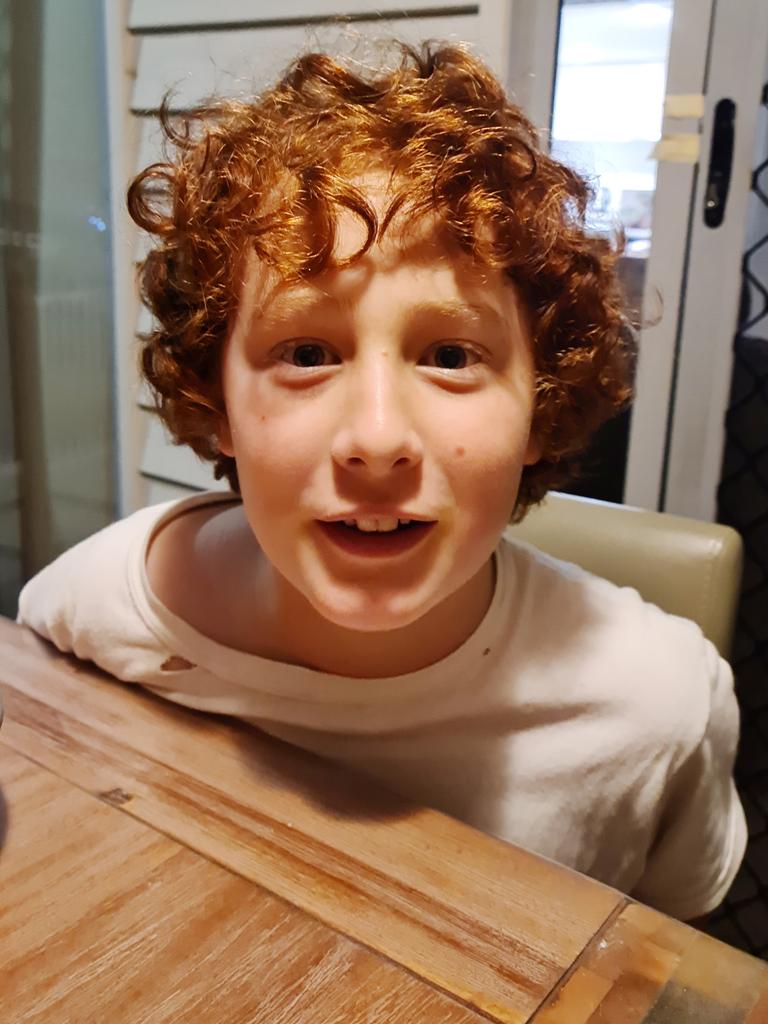
Eating Disorders Families Australia executive director Jane Rowan fears research showing 12.8 per cent of Australian adolescent boys met eating disorder diagnosis criteria in 2020 was now much higher.
Escalating numbers of alarmed parents were calling her organisation for help as more social media influencers encouraging muscle gain appeared to be fuelling a surge in problem eating and in drawing teenage boys into a new world of “gym culture”.
Ms Rowan said teenage boys were being bombarded with messages about muscles being attractive and how they needed expensive supplements and restrictive eating techniques like “bulking and cutting diets” to get results.
“There’s a huge concern … this is a form of disordered eating and it can easily become an eating disorder if not monitored very closely,” Ms Rowan said.
“Parents need to know about this but I think most of them are blissfully unaware.”
Mia Bannister’s son Ollie was only 14 when he too began watching endless fitness TikToks that led to him following restrictive eating regimes and becoming obsessed by gym workouts.
It was a cycle that saw Ollie, whose surname was Hughes, diagnosed with anorexia and earlier this year, Ms Bannister’s beautiful young son took his own life.
His devastated Mum is now calling for more help in recognising boys’ eating disorders and to quickly have legislation restricting social media use for young people introduced.
She has met with Federal Opposition Leader Peter Dutton, and is establishing a charity in Ollie’s memory.
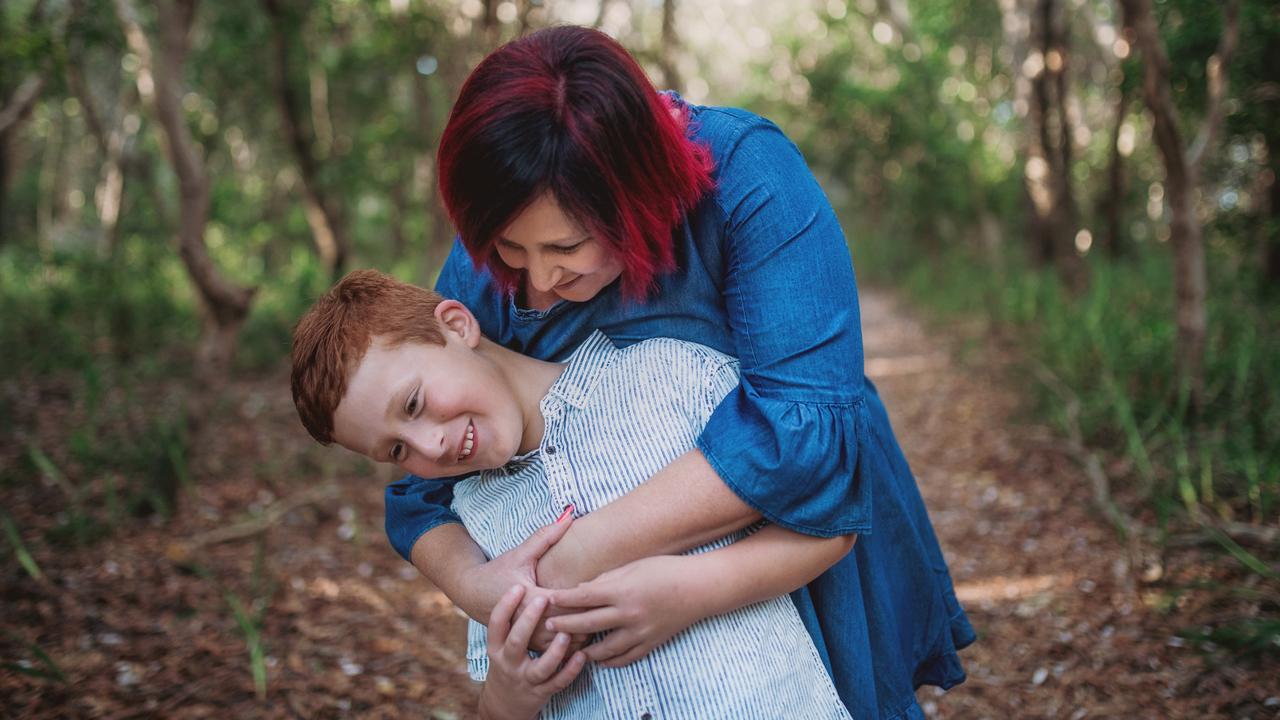
Julie, the mother of a 15-year-old Queensland student who did not want to be identified, also has first-hand experience.
Her son started following men promoting gym culture on TikTok and their messages about strict eating regimes soon became her son’s “source of truth”.
Other boys from her son’s school also had become “obsessed with the gym” and taking promoted protein powders, Julie saying her son’s health was so severely affected that he was almost hospitalised with an eating disorder earlier this year.
Flinders University senior researcher and eating disorder clinician Dr Simon Wilksch cited evidence from 50 studies in 17 countries indicating that social media usage leads to “body image concerns, eating disorders, disordered eating and poor mental health”.
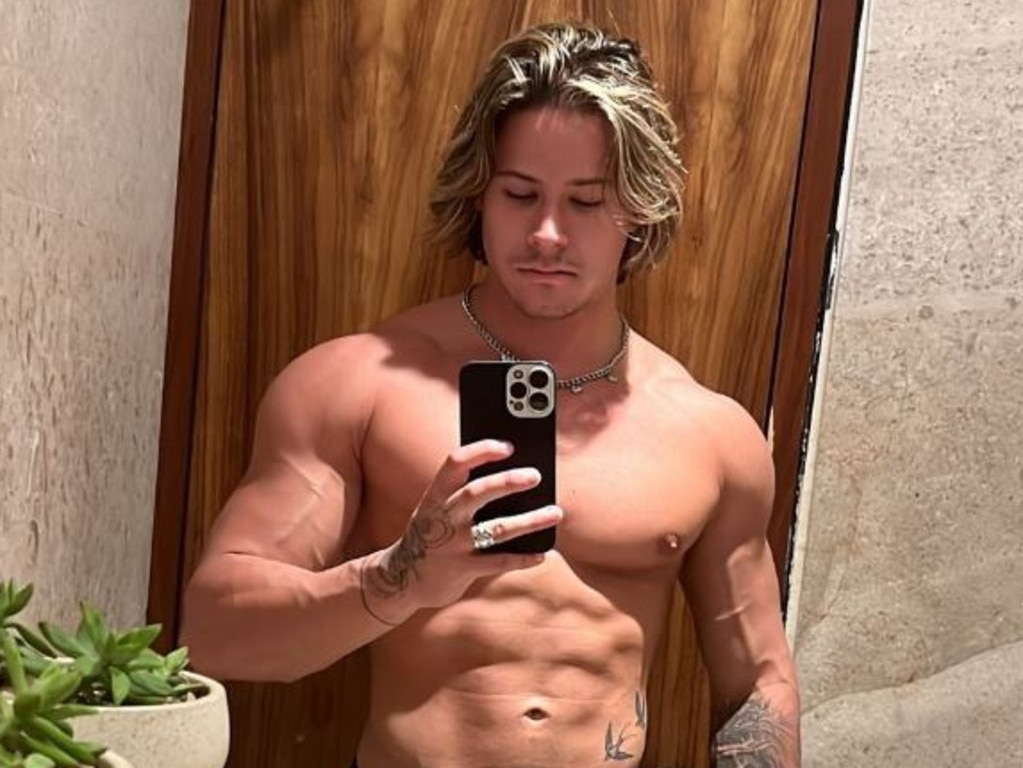
He believed gym culture influencers could create significant issues for teenage boys and “it’s really likely that social media is using targeted advertising of products to teenage boys”.
Eating trends to “bulk” by eating large amounts of food to build muscle and then “shred” by then severely restricting diets was an unhealthy approach that Dr Wilksch said could lead to disordered eating patterns.
“Social media looks for areas of vulnerability and I imagine with teenage boys a lot of muscular content is something they are drawn to,” he said, adding that it was important for parents to monitor their son’s rigid eating and gym regimes.
Body influencers like American Alex Eubank are among social media giants now hugely popular with teenage boys, he makes hundreds of videos promoting controlled eating to his 1.29m TikTok subscribers and recently started taking steroids.
Australian gym influencers are also promoting gym powder supplements ranging from protein powders to more worrying high caffeine pre-workouts.
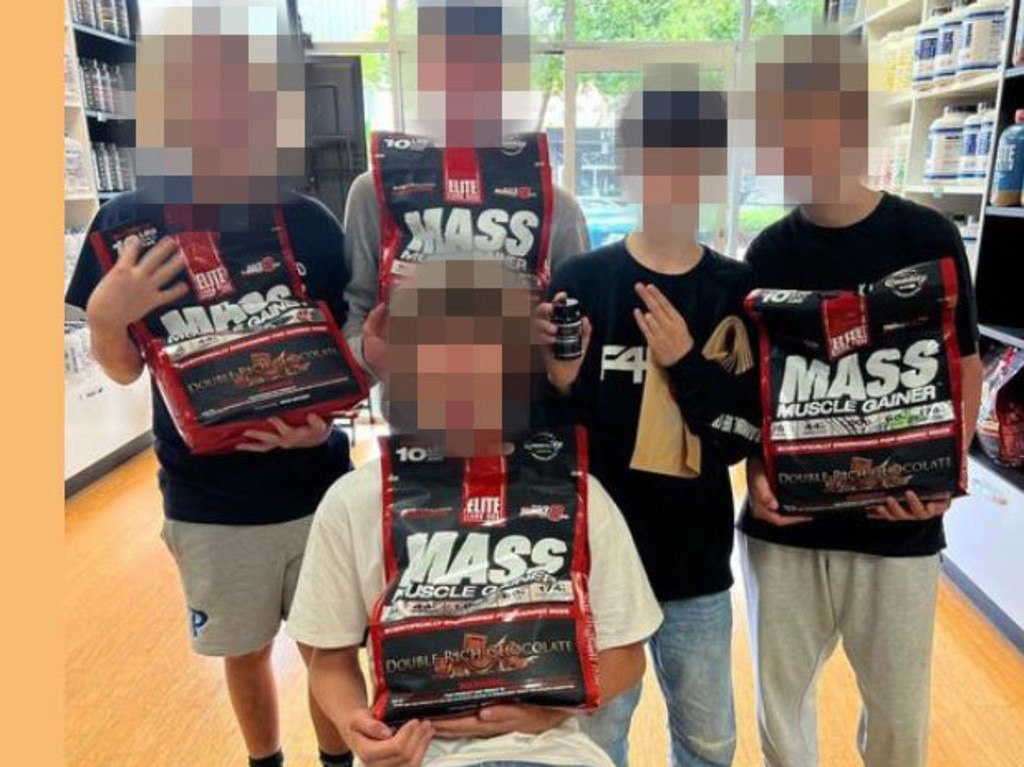
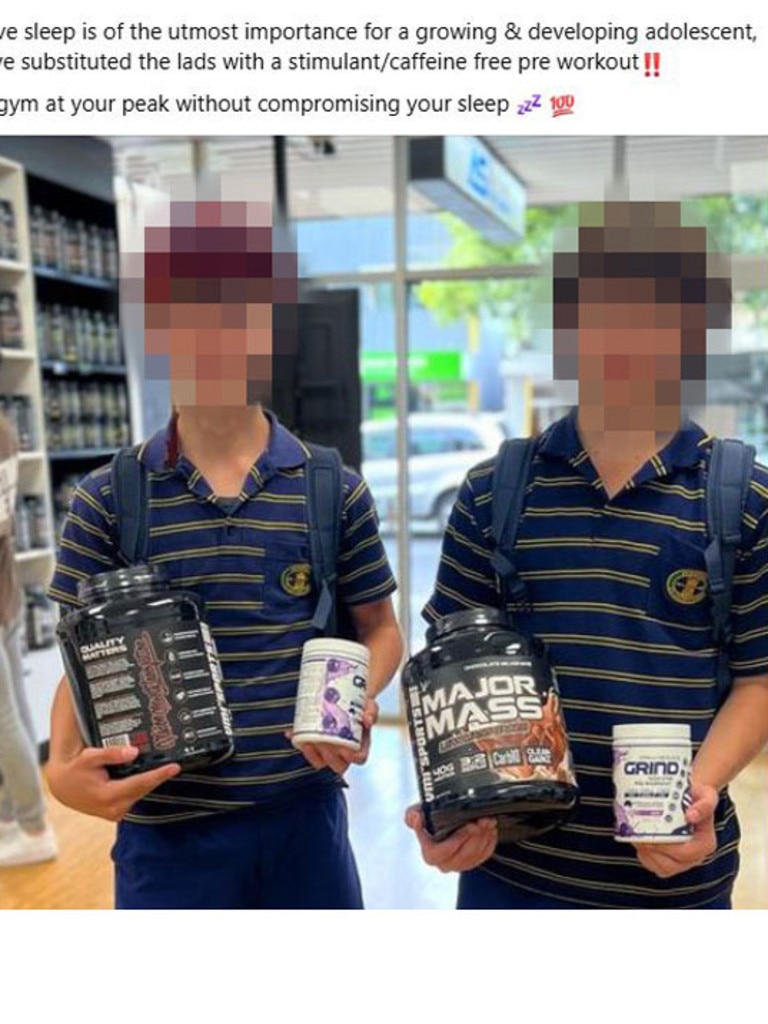
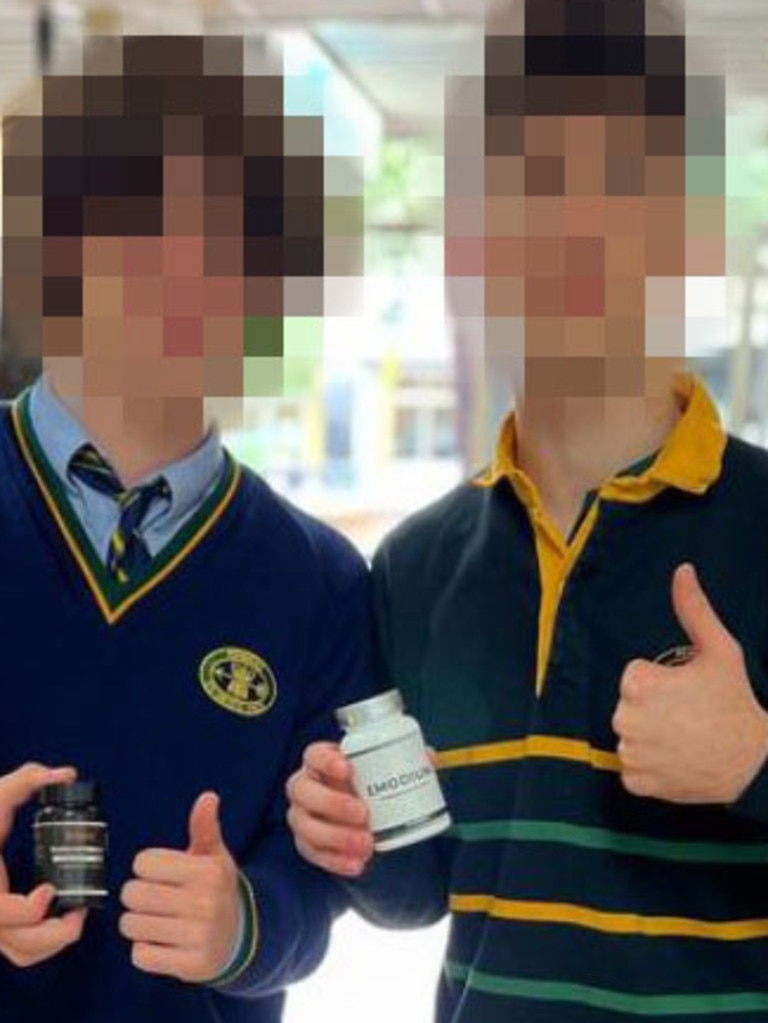
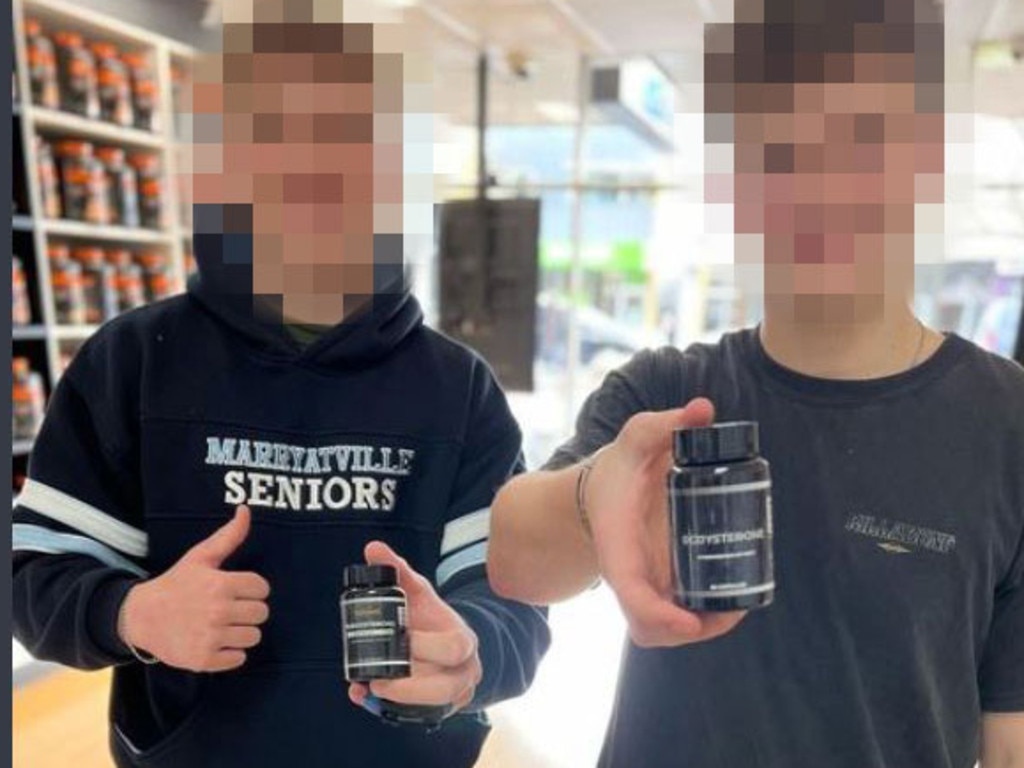
The Adelaide Supplements business has posted pictures of young teenage boys dressed in school uniforms on its Facebook feed holding large bags of supplements to promote its Norwood store. A spokesperson said the store had since closed and was no longer selling products.
Popular online store Elite Supplements offers a 10 per cent student discount for those aged 16 and over for its products ranging from pre-workouts to weight loss powders, caffeinated drinks and “pre-shred” powders meant to boost metabolism.
Elite Supplements also runs an affiliate program that it says is “geared at influencers, fitness bloggers and other fitness professionals” where it tells potential candidates that “by promoting our products, you can also earn rewards in the process”.
Food giants are also cashing in on the billion-dollar industry focused on promoting high protein products with protein touted as beneficial in muscle recovery, boosting metabolism and helping with weight loss.
They market foods ranging from cornflakes to nut bars and even Farmers Union Iced Coffee earlier this month announced it was launching its Protein Iced Coffee “designed to fuel the lifestyle of South Australians”.
Researcher Scott Griffiths described the supplement industry as a “real wild west” where an endless cycle of new products “purports to be the next secret weapon to building muscle”.
While protein powders were generally in the green light category, he said creatine products could cause gastrointestinal upsets and users should be wary of using high-caffeine pre-workout products.
However he is diplomatic in giving parents advice, saying supplements were used by many and did not cause problems.
“Don’t panic at the term supplements in general, if it’s a protein powder, maybe a creatine, keep a watchful eye but there’s no need to be worried … they are used by many people for all sorts of things,” he said.
“The distinction comes when there’s a training session missed or you can’t have protein with you … and that brings feelings of guilt or shame.
“If that brings you undone that’s a sign it’s more stressful and it’s worth looking at.”
Originally published as Eating disorders surge as TikTok gymfluencer supplements trend takes hold among Australian boys








